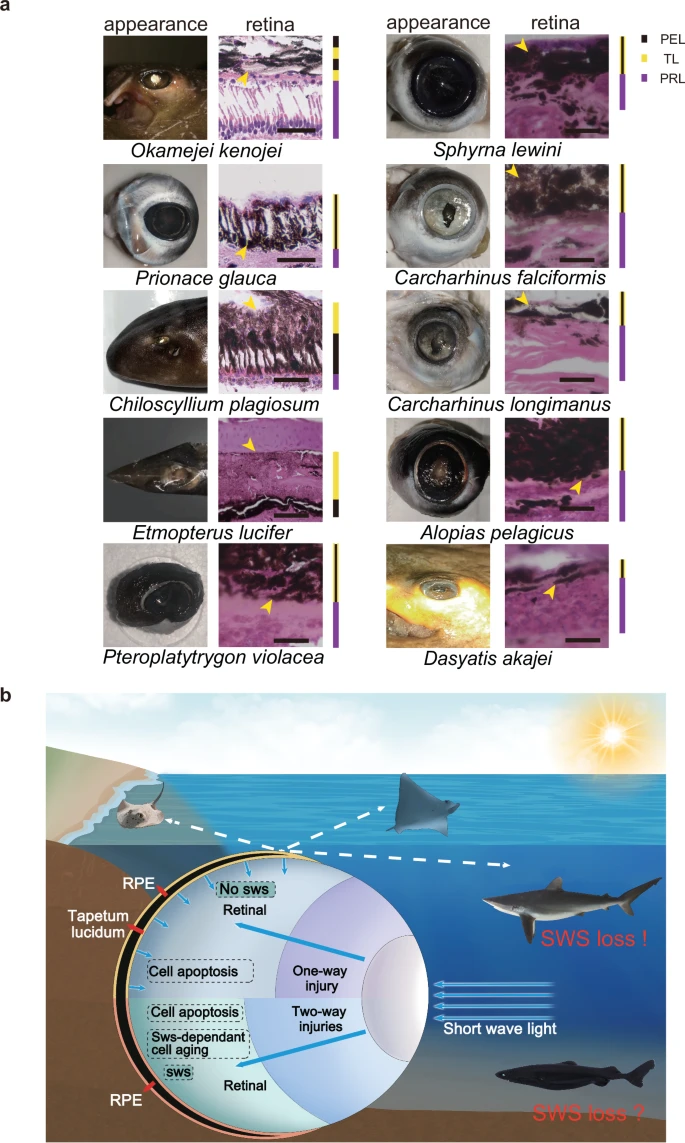Fig. 5 Relationship between tapetum lucidum and sws loss in cartilaginous fishes. a Tapetum lucidum (TL) in the eyes of some cartilaginous fishes. The image was taken with a flash in the dark, all fishes were ever frozen except for Okamejei kenojei and Chiloscyllium plagiosum. Tissue sections show the location of the tapetum lucidum in the pigment epithelial layer (PEL). PRL:photoreceptor cell layer. Scale bar: 50 µm. n = 1, the experiment was not repeated and 5 slices were made for each sample, and the best complete slice was selected for display. b Simplified model of sws loss in cartilaginous fish. The lower half of the eye in the schematic illustrates a two-way retinal injury mechanism, including apoptosis and SWS-dependent cell aging, which is induced by shortwave light in the presence of SWS. The upper half of the eye in the schematic shows that in cartilaginous fish, the tapetum lucidum can reflect shortwave light, thus reducing retinal damage. Thus, with sws loss, cartilaginous fish sustain shortwave-light-induced retinal injury only via a one-way mechanism. RPE retinal pigment epithelium.
Image
Figure Caption
Acknowledgments
This image is the copyrighted work of the attributed author or publisher, and
ZFIN has permission only to display this image to its users.
Additional permissions should be obtained from the applicable author or publisher of the image.
Full text @ Nat. Commun.

